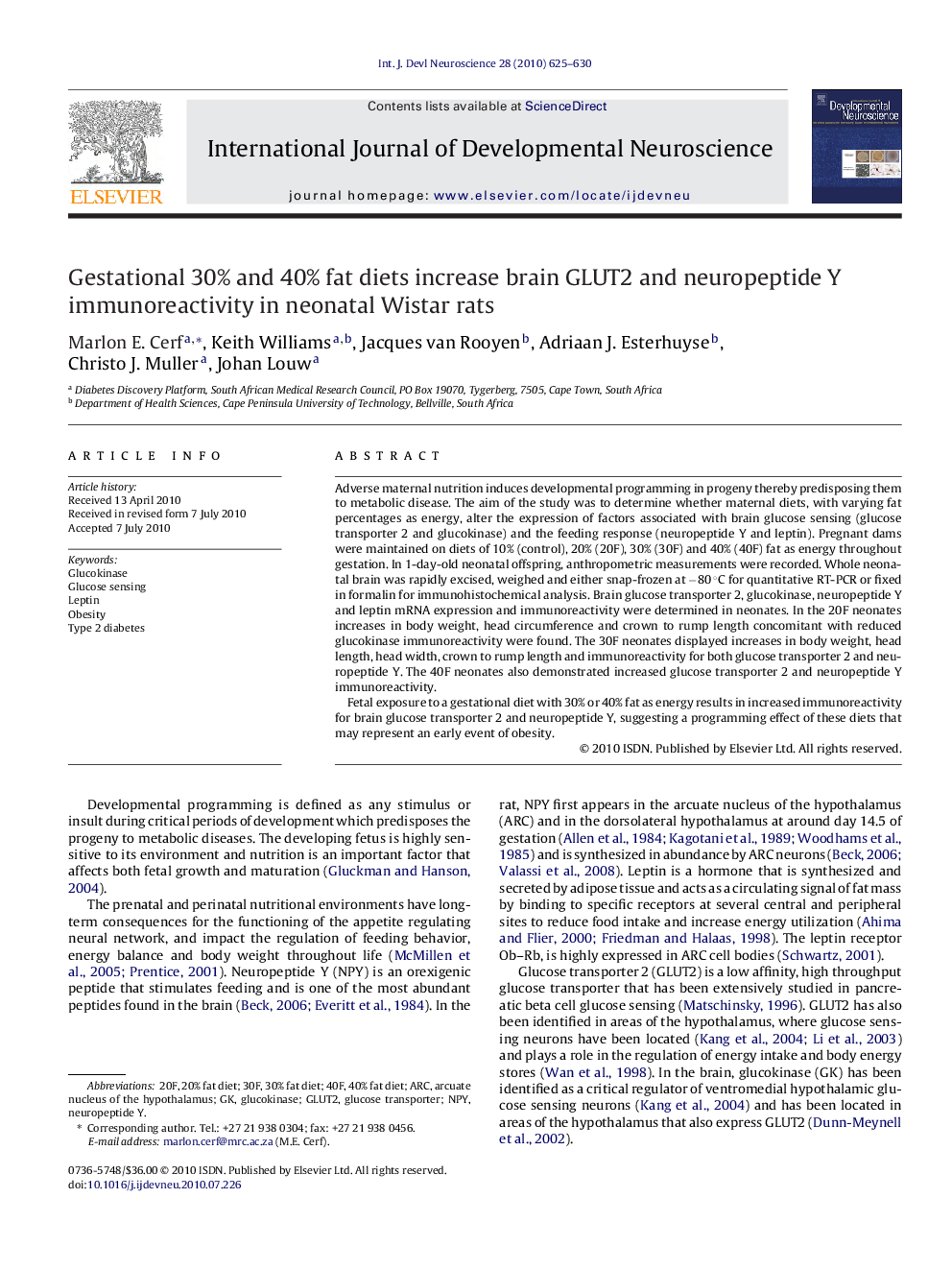| Article ID | Journal | Published Year | Pages | File Type |
|---|---|---|---|---|
| 2786741 | International Journal of Developmental Neuroscience | 2010 | 6 Pages |
Adverse maternal nutrition induces developmental programming in progeny thereby predisposing them to metabolic disease. The aim of the study was to determine whether maternal diets, with varying fat percentages as energy, alter the expression of factors associated with brain glucose sensing (glucose transporter 2 and glucokinase) and the feeding response (neuropeptide Y and leptin). Pregnant dams were maintained on diets of 10% (control), 20% (20F), 30% (30F) and 40% (40F) fat as energy throughout gestation. In 1-day-old neonatal offspring, anthropometric measurements were recorded. Whole neonatal brain was rapidly excised, weighed and either snap-frozen at −80 °C for quantitative RT-PCR or fixed in formalin for immunohistochemical analysis. Brain glucose transporter 2, glucokinase, neuropeptide Y and leptin mRNA expression and immunoreactivity were determined in neonates. In the 20F neonates increases in body weight, head circumference and crown to rump length concomitant with reduced glucokinase immunoreactivity were found. The 30F neonates displayed increases in body weight, head length, head width, crown to rump length and immunoreactivity for both glucose transporter 2 and neuropeptide Y. The 40F neonates also demonstrated increased glucose transporter 2 and neuropeptide Y immunoreactivity.Fetal exposure to a gestational diet with 30% or 40% fat as energy results in increased immunoreactivity for brain glucose transporter 2 and neuropeptide Y, suggesting a programming effect of these diets that may represent an early event of obesity.
Research highlights▶ 30% and 40% fat diets increase brain GLUT2 immunoreactivity in neonatal rats. ▶ 30% and 40% fat diets increase brain NPY immunoreactivity in neonatal rat offspring. ▶ Elevated GLUT2 and NPY immunoreactivity may represent early events of obesity.
